Recovery and care Taping
()Sort by
-

Hummel Ice Spray 200ml Tape
12.99 €
-
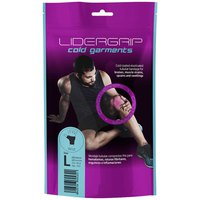
Lidergrip Cold Garments Elbow Compressive Tubular Bandage
14.99 €
-
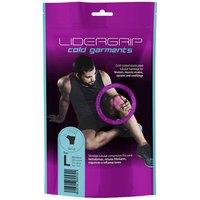
Lidergrip Cold Garments Ankle Compressive Tubular Bandage
14.99 €
-
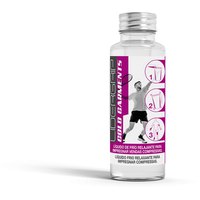
Lidergrip Cold Garments Liquid 75ml
4 €
-
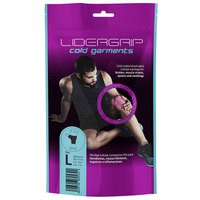
Lidergrip Cold Garments Wrist Compressive Tubular Bandage
14.99 €
-

Lidergrip Cold Garments Knee Compressive Tubular Bandage
14.99 €
-

Rock Tape Bulk Standard Intl 5 cmx32m Kinesiology Tape
86.49 €
-
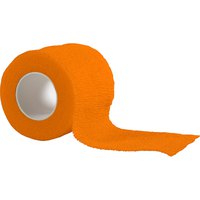
Pure2improve Cohesive Tape 5 cmx4.5m
1.99 €
-

Rinat Cohesive Tape
4.99 €
-
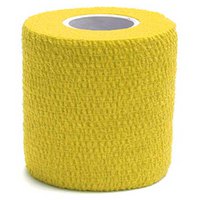
Rinat Cohesive Tape
4.99 €
-
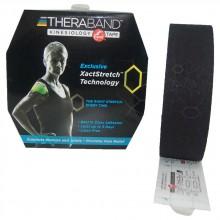
TheraBand Kinesiology Precut 5 m Tape
13.49 €
-

Rock Tape FingerTape 2.5 cmx5m Kinesiology Tape
11.99 €
-

Rock Tape Standard 5 cmx5m Kinesiology Tape
13.99 €
-

Rock Tape Standard 5 cmx5m Kinesiology Tape
13.99 €
-
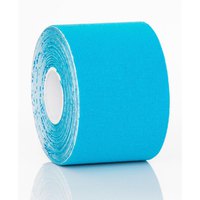
Gymstick Kinesiology 5m Tape
12.99 €
-

Gymstick Kinesiology 5m Tape
12.99 €
-
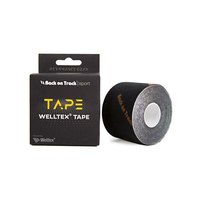
Back On Track Adhesive Tape P4G Welltex Tape
15.99 €
-

TheraBand Kinesiology Precut 5 m Tape
14.49 €
-
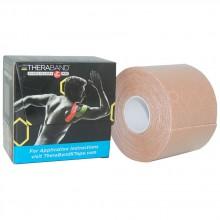
TheraBand Kinesiology 5 m Tape
11.49 €
-
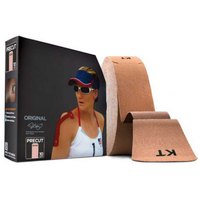
KT Tape Original Jumbo Precut 150 Units
53.49 €
-

Rinat Cohesive Tape
4.49 €
-

RDX Sports Gym Knee Wraps
25.49 €
-

Finnlo 4.5m Bandage
10.99 €
-
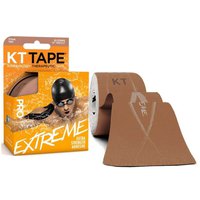
KT Tape Pro Extreme Precut 5 m
16.99 €
-
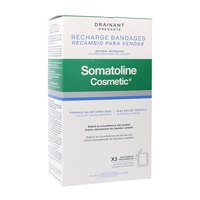
Somatoline Pack Drenante Recarga Bandage
35.33 €
-

Rock Tape Bulk Standard Intl 10 cmx32m Kinesiology Tape
172.99 €
-

Rock Tape Bulk Standard Intl 5 cmx32m Kinesiology Tape
81.99 €
-

Rock Tape Mini Bid Daddy Logo H2O Intl 10 cmx5m Kinesiology Tape
33.99 €
-

Rock Tape Standard 5 cmx5m Kinesiology Tape
13.99 €
-

Rock Tape Standard 5 cmx5m Kinesiology Tape
13.49 €
-

Rock Tape Standard 5 cmx5m Kinesiology Tape
13.99 €
-

Rock Tape Standard 5 cmx5m Kinesiology Tape
13.49 €
-

Rock Tape Standard Intl 5 cmx25 cm Pre-Cut Kinesiology Tape
15.99 €
-

Rock Tape Mini Bid Daddy Logo Intl 10 cmx5m Kinesiology Tape
32.99 €
-

Rock Tape Standard 5 cmx5m Kinesiology Tape
13.99 €
-

Rock Tape Standard 5 cmx5m Kinesiology Tape
15.99 €
-

Rock Tape Standard H2O Logo 5 cmx5m Kinesiology Tape
13.99 €
-

TheraBand Kinesiology 5 m Tape
11.49 €
-

Rock Tape Standard 5 cmx5m Kinesiology Tape
13.99 €
-

KT Tape Pro Precut 5 m
37.65 €
-

KT Tape Pro Uncut 38 m
101.53 €
-
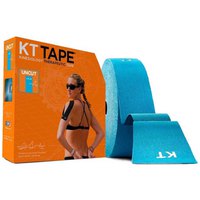
KT Tape Pro Uncut 38 m
101.53 €
-
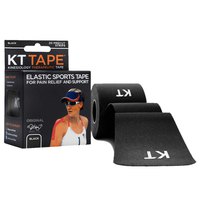
KT Tape Original Precut 5 m
30.67 €
-

KT Tape Pro Synthetic Precut Kinesiology 20 Units
15.99 €
-

Pure2improve Cohesive Tape 5 cmx4.5m
1.99 €
-
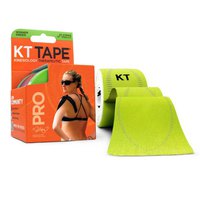
KT Tape Pro Synthetic Precut Kinesiology 20 Units
15.49 €
-

Rinat Cohesive Tape
4.99 €
-

TheraBand Kinesiology Precut 5 m Tape
13.49 €
-

Rock Tape Standard 5 cmx5m Kinesiology Tape
13.99 €
-

Rock Tape Standard H2O Intl 5 cmx5m Kinesiology Tape
15.99 €
-

Rock Tape Mini Bid Daddy Intl 10 cmx5m Kinesiology Tape
31.99 €
-

Rock Tape RockFloss 10 cmx2.1m Band
28.99 €
-

Rock Tape Standard 5 cmx5m Kinesiology Tape
13.49 €
-

Rock Tape Standard 5 cmx5m Kinesiology Tape
13.49 €
-

Rock Tape Standard H2O Intl 5 cmx5m Kinesiology Tape
14.49 €
-

Rock Tape Bulk Standard Intl 5 cmx32m Kinesiology Tape
86.49 €
-

Rock Tape Mini Bid Daddy Intl 10 cmx5m Kinesiology Tape
31.99 €
-

Rock Tape Standard 5 cmx5m Kinesiology Tape
13.49 €
-

Rock Tape Standard H2O Intl 5 cmx5m Kinesiology Tape
13.99 €
-

Rock Tape Bigdaddy Reg Intlmed 10 cmx32m Kinesiology Tape
165.99 €
-

Rock Tape Standard 5 cmx5m Kinesiology Tape
13.49 €
-
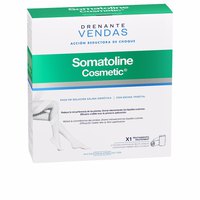
Somatoline Pack Drenante Bandage
21.75 €
-

KT Tape Original Precut 5 m
28.86 €
-

KT Tape Pro Uncut 38 m
107.78 €
-

Mc David Eurotape 5 cmx10m Kinesiology Tape
104.99 €
-

Pure2improve Cohesive Tape 5 cmx4.5m
1.99 €
-
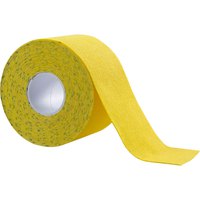
Pure2improve Kinesiology Tape 5 cmx5m
10.99 €
-
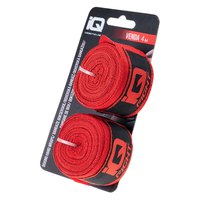
Iq M000215912 Hand Bandage
6.99 €
-

Select Stretch Extra 6 cmx3m Bandage 2 Units
5.99 €
-
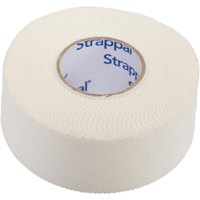
Hummel Strappal 2.5 cm Tape
4.99 €
-

KT Tape Recovery Massage Ball Cold
36.74 €
-

Montana Gel Inner Gloves With Wristband
28.60 €
-

Gymstick Kinesiology 5m Tape
11.99 €
-

Gymstick Kinesiology Pre-Cut Ankle / Calf Tape
8.99 €
-
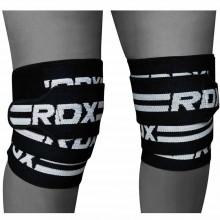
RDX Sports Gym Knee Wrap
21.99 €
-

KT Tape Original Jumbo Uncut 125 Units
50.99 €
-
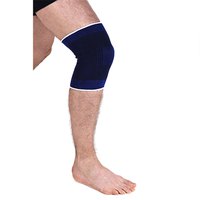
Wellhome KF049-M Leg Bandage
24.99 €
-
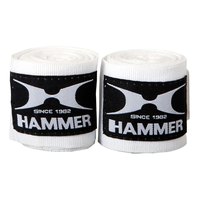
Finnlo 2.5m Bandage
7.99 €
-

Ultimate Performance Kinesiology Tape
9.99 €
-
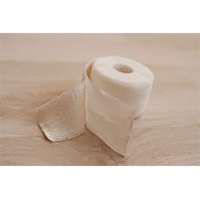
Powercare Cohesive Tape
2.99 €
-

Rock Tape Bulk Standard Intl 10 cmx32m Kinesiology Tape
172.99 €
-

Rock Tape Standard 5 cmx5m Kinesiology Tape
13.49 €
-

Rock Tape Standard Intl 5 cmx25 cm Pre-Cut Kinesiology Tape
15.99 €
-

Rock Tape Bulk Standard Intl 5 cmx32m Kinesiology Tape
86.49 €
-

Rock Tape HookGrip 5 cmx25 cm Thumb Protection
13.99 €
-
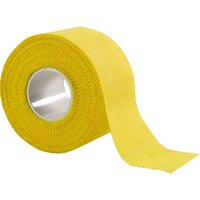
Pure2improve Duo Pack Kinesiology Tape 3.8 cmx10m
7.99 €
-

TheraBand Kinesiology Tape 6
56.49 €
-

KT Tape Blister Prevention Tape Precut 30x9 cm
7.99 €
-

Mc David Sport 3.8 cmx10m Tape
3.99 €
-

TheraBand Kinesiology 5 m Tape
16.99 €
-

Rock Tape Mini Bid Daddy Intl 10 cmx5m Kinesiology Tape
34.99 €
-

Rock Tape Bulk Extra Sticky H2O 5 cmx32m Kinesiology Tape
81.99 €
-

Rock Tape Standard Intl 5 cmx25 cm Pre-Cut Kinesiology Tape
14.99 €
-

TheraBand Kinesiology 5 m Tape
11.49 €
-

Pure2improve Cohesive Tape 5 cmx4.5m
1.99 €
-

TheraBand Kinesiology 5 m Tape
11.99 €
How to choose the right bandage for fishing?
Kinesiology tapeThis tape is believed to help reduce pain by providing support to muscles and joints. For anglers who spend long hours fishing, especially those who engage in repetitive motions or experience discomfort in specific areas, applying kinesiology tape may offer some relief and allow them to fish more comfortably.
Tubular bandage
These bandages can offer support to joints and muscles during fishing activities, especially in areas prone to strain or repetitive stress. Tubular bandages can help stabilize and protect the muscles and joints, reducing the risk of overuse injuries or discomfort while casting and reeling. You can buy these bandages from these brands: Gymstick, Hummel, Powershot and Lonsdale.
Hand bandage
These bandages provide support to the joints, muscles, and ligaments in the hand and wrist. This can be particularly beneficial for anglers who perform sudden moves, such as casting and reeling, which can strain the hand and wrist over time. The hand bandage helps stabilize the area and reduce the risk of injuries.
The wraps offer support to the wrist joint, providing stability during repetitive movements in water activities such as sailing or fishing. This can be especially beneficial for anglers who fish for long periods, as it helps reduce the risk of overuse discomforts and strain on the wrist. Wrist wrap acts as a preventive measure against common fishing related wrist injuries, such as wrist sprains and strains. They provide a protective layer that supports the ligaments and tendons in the wrist and also helps to treat the injuries that occur during fishing activities.
Selecting the right bandage for fishing involves considering various factors to address potential injuries or wounds while out on the water. Here are some tips to help you choose suitable bandages for fishing:
Waterproof and adhesive: Opt for waterproof or water resistant bandages that adhere well even in wet conditions. Fishing involves exposure to water, so bandages that maintain their adhesive properties when wet are essential.
Flexible and conforming: Choose bandages that are flexible and conform to the body´s contours, especially for areas that might require movement while fishing. Flexible bandages provide better adherence and comfort, ensuring they stay in place.
Breathable material: Select bandages made from breathable materials to allow air circulation around the wound. This helps promote healing and prevents moisture buildup, reducing the risk of infection.

























